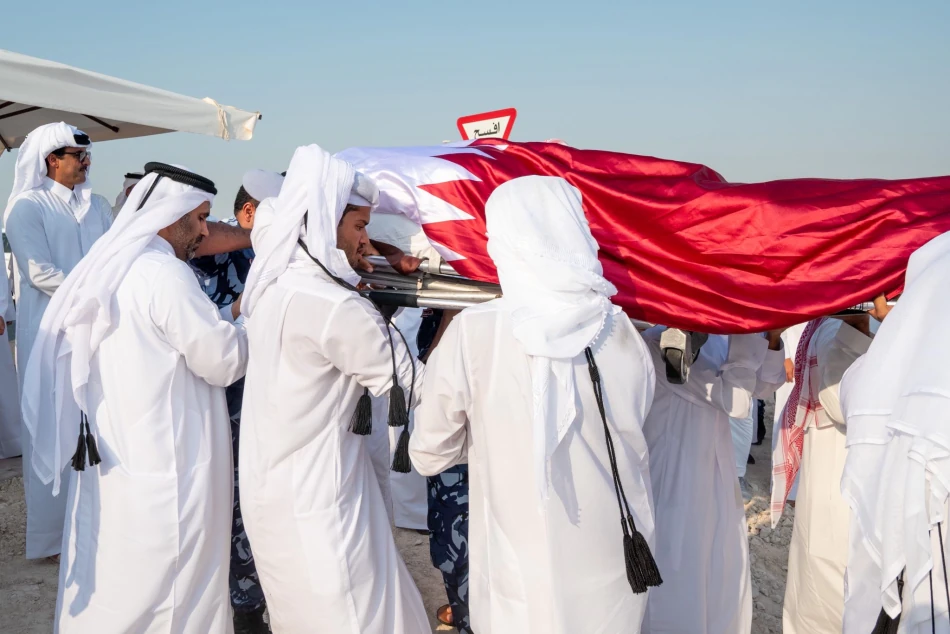
Qatar Emir Leads Funeral Prayers for Victims of Israeli Assault
Qatar's Emir Leads Funeral for Victims of Israeli Attack on Doha
Sheikh Tamim bin Hamad Al Thani, Emir of Qatar, led funeral prayers for what officials described as "martyrs of duty" killed in an Israeli attack on Doha, marking a significant escalation in regional tensions and highlighting Qatar's increasingly precarious position as a diplomatic mediator in the Middle East.
High-Level Response to Deadly Strike
The Qatari ruler personally conducted funeral prayers for the victims before offering condolences to bereaved families at Mesaimeer Cemetery. Among those killed was Badr Al-Dosari, identified by the Emir as having died "while performing his duty."
In a statement posted on his official X account, Sheikh Tamim called the incident a "treacherous Israeli aggression" and prayed for divine mercy for all victims. The Emir's direct involvement in the funeral proceedings underscores the gravity Qatar assigns to the attack.
Strategic Implications for Regional Diplomacy
Qatar's Delicate Balancing Act
The attack places Qatar in an extraordinarily difficult position. The Gulf state has spent years cultivating its role as a neutral mediator, hosting Hamas leadership while maintaining diplomatic ties with Israel and serving as a key interlocutor in ceasefire negotiations. An Israeli strike on Qatari soil fundamentally challenges this carefully constructed neutrality.
Qatar's response will likely influence its future willingness to host sensitive diplomatic negotiations. The country has previously leveraged its unique position to facilitate prisoner exchanges and ceasefire talks, but direct targeting by Israel could force a recalibration of these relationships.
Precedent and Regional Reactions
Israeli operations on the territory of Arab states that maintain diplomatic relations or cooperative arrangements with Tel Aviv are rare but not unprecedented. However, strikes on Gulf Cooperation Council member states carry particular weight given these nations' economic importance and regional influence.
The incident echoes Israel's 2020 assassination of Iranian nuclear scientist Mohsen Fakhrizadeh and various operations in Syria, but targeting Qatar—a major global energy supplier and host to significant U.S. military assets—represents a notable escalation in operational scope.
Economic and Security Ramifications
Qatar's status as the world's largest liquefied natural gas exporter makes regional stability crucial for global energy markets. Any deterioration in security conditions could impact investor confidence and complicate Qatar's preparations for hosting major international events.
The presence of Al Udeid Air Base, which houses the largest U.S. military facility in the Middle East, adds another layer of complexity. American officials will likely seek to prevent any escalation that could compromise this strategic asset or complicate U.S. military operations in the region.
Looking Ahead: Diplomatic Consequences
This incident may force Qatar to choose between its role as a neutral mediator and its sovereignty. The Emir's public condemnation suggests Qatar will not quietly absorb such attacks, potentially ending its unique position as a bridge between conflicting parties in the region.
For Israel, the operation—regardless of its immediate tactical success—may have eliminated a crucial diplomatic channel at a time when such avenues are increasingly scarce. Qatar's withdrawal from mediation efforts could significantly complicate future ceasefire negotiations and prisoner exchanges.
Most Viewed News

 Sara Khaled
Sara Khaled






